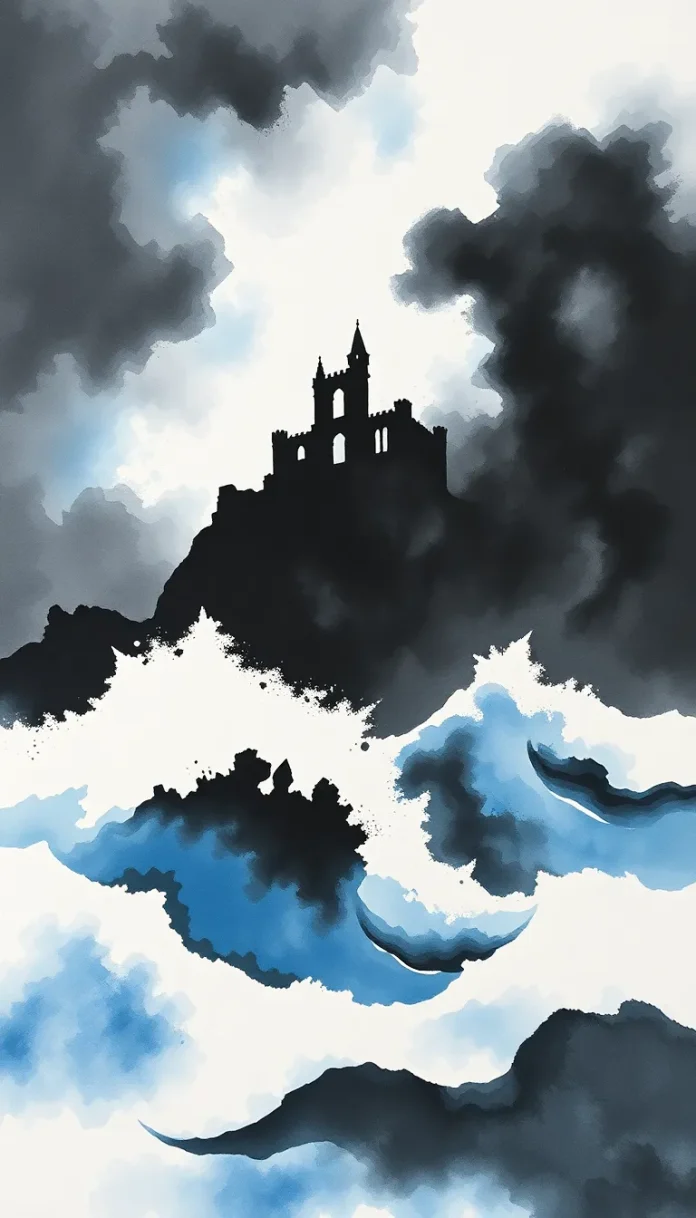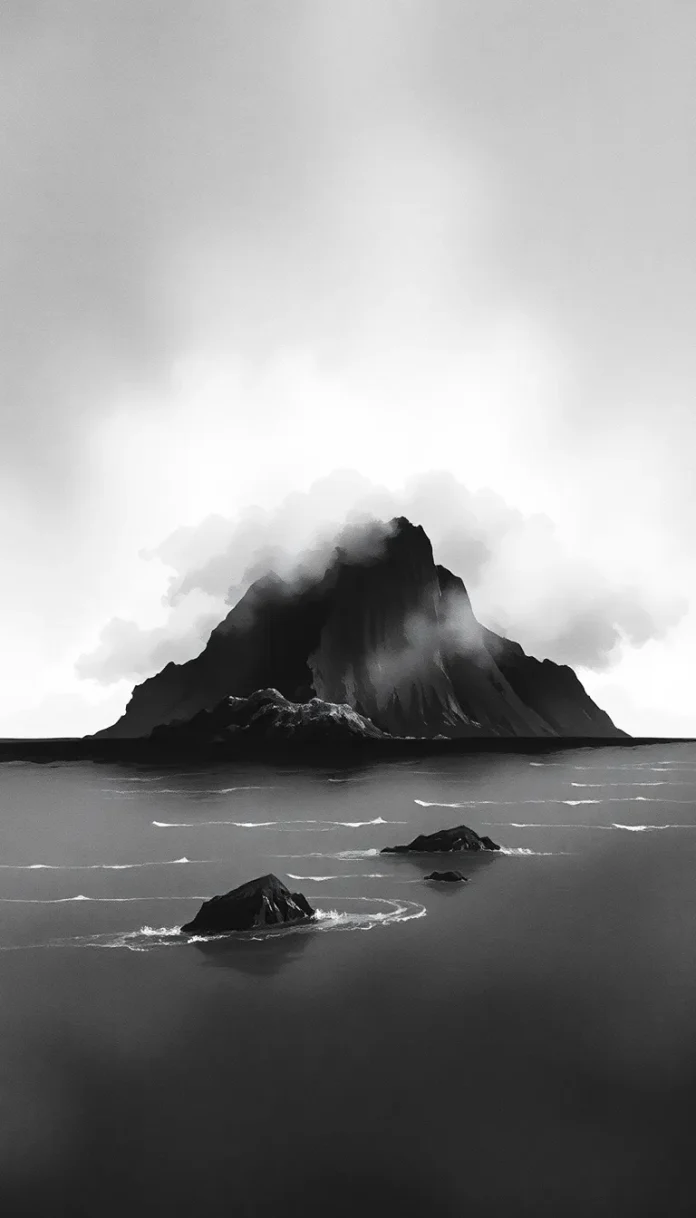The Orphan’s Requiem in Ivy-Clad Stones
A boy of twelve, with threadbare cloak, beholds the fortress rise—
Its turrets claw the starless void, its gates like splintered bones,
A relic where the ivy wails o’er time’s unmarked milestones.
The wind, a ghost of whispered years, through crumbling arches strays,
And sings of days when laughter rang in sunlit galleries.
Now silence, thick as burial shrouds, hangs heavy on the air,
Yet still he treads the thorn-choked path, drawn by a phantom prayer.
Here once his cradle knew the warmth of hands he can’t recall,
Whose voices linger in the dust, faint as a distant thrall.
A portrait draped in cobwebs sways—a face half-eaten by mold—
Eyes mirroring his own, yet steeped in secrets left untold.
“Oh, speak!” he cries to hollow halls where memory’s echoes play,
“What cruel fate stripped me of my name, then cast my heart away?”
The walls reply in groans of stone, their tongues too old for lies,
While moonbeams carve his silhouette—a shadow’s shadow—wise.
He climbs the stair where banisters, like serpents, twist and coil,
Each step a dirge for childhood’s door he’ll nevermore unfoil.
A nursery’s husk, with shattered toys, greets him in wan repose:
A horse with mane of tarnished gold, a doll whose glass tear glows.
“I know you,” murmurs the orphan, clutching fraying strands of time,
“You danced in dreams I dared not keep, now lost to reason’s chime.”
The doll’s cracked lips seem to stir, yet no solace do they bring—
Her frozen grief, a mirror to the ache beneath his skin.
Three nights he roams the labyrinth where past and present bleed,
Each corridor a nerve laid bare, each chamber a mute creed.
In libraries where moths devour tales of love’s swift decay,
He finds a journal, bound in grief, where ink has turned to gray:
“To you, my son, though fate decrees these words shall grace no eye,
I etch my penance here in ash before the well runs dry.
The curse we bore, a crown of thorns, too vile for thee to bear—
Forgive the hands that set you free from lineage’s snare.”
No seal, no name—just whispers trapped in parchment’s jaundiced veins.
The boy, now trembling, seeks the tower where truth may yet be slain.
At zenith’s height, a casement yawns, its view a yawning tomb:
Below, the cliffs gnash teeth of stone; above, the void’s cold womb.
“Was I loved?” he asks the tempest, tears alloyed with the rain.
The gale replies in tongues of ice, “All love is mortal pain.”
Yet in the storm’s discordant hymn, a lullaby survives—
A mother’s hum, though drowned by years, that trembles, dares, revives.
He turns, and lo! A spectre stands, her form of mist and rue,
Her arms outstretched in futile grace, her eyes of morning dew.
“I dreamed you thus,” the orphan gasps, “in sleep’s unbarricade!
Why stitch the wound only to pierce anew with this charade?”
Her lips, like petals borne by floods, part to release a song
That spirals through the desolate halls, righting ancient wrong:
“I cradled you in shadowed hours, then severed every thread,
Lest you inherit hell’s own due from veins whence you were bred.
Run, child, from this mausoleum—its truth is but a knife.
Some roots are meant to stay interred, lest they consume your life.”
But longing, fiercer than the plea, roots him to sacred ground—
He clasps her ghost, which melts like wax, as dawn’s first blade is found.
The east ignites; the castle quakes, its flesh from bones undone.
The orphan’s cry becomes the keene of all that’s lost and done.
Stones weep their final tears of rust as ramparts kiss the earth,
Entombing lore no soul should wield, save death, in second birth.
And where the boy once stood, a sapling strains toward the light,
Its leaves inscribed with questions left unanswered by the night.
Travelers who pass that blighted hill swear on their fleeting breath,
They hear twin voices wreathed in wind—one laughter, one lament.
Thus ends the tale in ivy’s grip, where ruin and hope collide:
The past, a fire none can grasp; love’s echo, suicide.
Yet in the soil, where memories sleep, a seed dares to propose
That even truths which shatter hearts may birth a fragile rose.
“`


